
Client Relations & Marketing






Despite the ubiquity of big-box-store loss-leader promotions, there is a future for flea, tick and heartworm preventive sales in your veterinary practice.
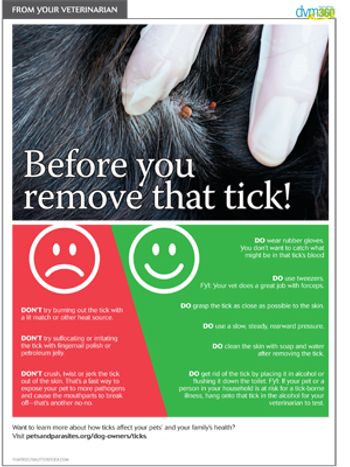
Give brave pet owners this handout for tackling tick infestations on their pets at home.

Are your veterinary clients kinda "meh" when it comes to flea control? Here are the most motivating factors to consider the next time you make recommendations.

Have your veterinary clients try these tips for more peaceful pooches.

Show these gentle, fluffy giants some love with these breed of the month social media posts.

Your clients may be fonder of Goldie's golden locks than you imagine. So we before you shave that gorgeous mane for an ultrasound exam, make sure you educate veterinary clients about their pet's new haircut.

Help pet owners get a handle on their pets nutrition needs with this printable tool.

If the answer to either of these two questions is "yes," then ABSOLUTELY your veterinary hospital needs to sell pet food to pet owners, according to Ernie Ward, DVM.
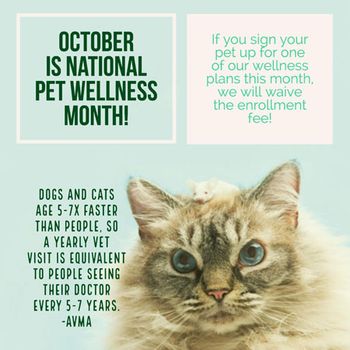
If talking wellness plans makes you yawn or cringe, just imagine how your clients feel! Freshen your approachand your marketingto help more patients receive high-quality veterinary care.

Be your veterinary patients cheerleader to help your clients stay the course of treatment.
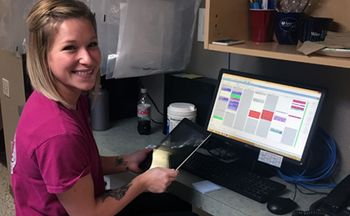
Who has time to send smartphone texts, send and receive medical records, manage online appointments and send patient updates and cute pics to information-hungry pet owners? Here's why I think everyone needs this new client-facing team member in their veterinary practice.
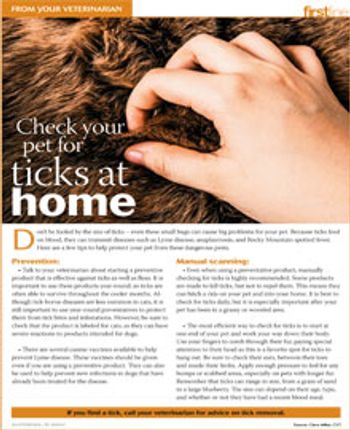
Educate your clients on the task of checking their pets for ticks from home, and make sure they know exactly what to do if they find one.
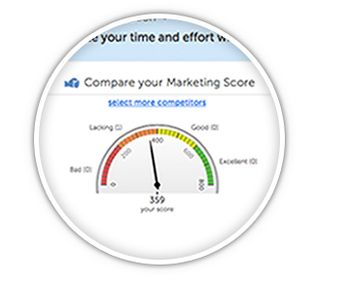
New KPI trackers. Funny client education materials. Better ways to manage medical records. All this and more in our business-focused roundup of stuff we heard about in meetings, saw on the show floor or caught word of at this year's February show in Florida.

Teach clients more about this deadly vector using an informational handout.
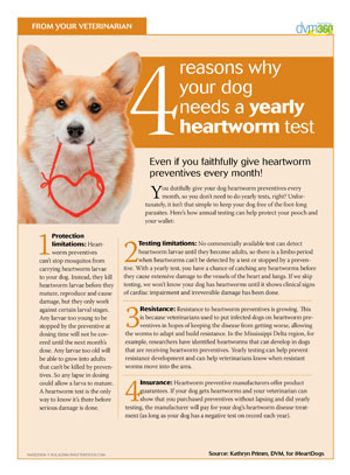
If your veterinary clients treat monthly preventives as a guarantee, give them a reason (or four) to test their pets.

Injecting a dose of reality for veterinary clients with diabetic cats isn't painful-it's positively inspiring!

Sew up parasite prevention gaps with these tailored tips to target a range of veterinary clients.

Kidding! But we know clients tend to religiously follow their breeder's recommendations. Let's realize whether or not they are following the breeder blindly through good communicationnot arguing.

"Safety" isn't just a football score. Game-day distractions can be dangerous for petshere's how to keep them safe.

"I tell veterinary clients, 'If you don't come back for a recheck, even if the animal looks good, then you've wasted my time, your time and your money.'" CVC educator James Noxon, DVM, DACVIM, helpfully but truthfully addresses the real elephant in the room when a dog has otitis and needs medicine at home.

Hint: Most of the time, it's not on the pet. Educate veterinary clients about the role the environment plays in their flea infestation.
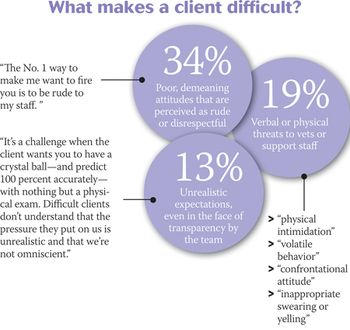
Heres what veterinarians think about difficult pet owners: how it feels when clients lash outand whos willing to show them the door.
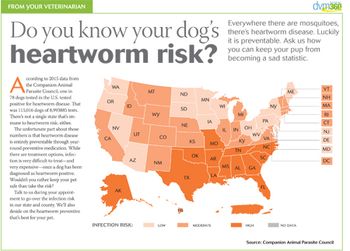
Using prevalence maps from the Companion Animal Parasite Council, you can drive home the importance of year-round prevention to your clients.
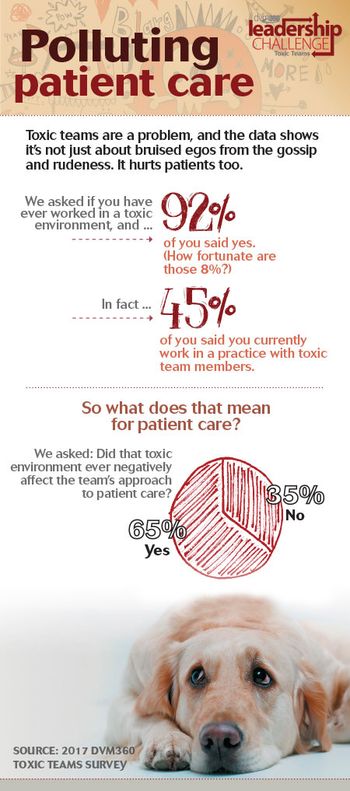
Toxic veterinary teams are a problem, and the data shows its not just about bruised egos from the gossip and rudeness. It hurts patients too. And the damage caused by one pet's bad experience may never be reversed.

This veterinary team was concerned that a baby had been exposed to leptospirosisbut the pet owner was threatening to sue. Heres how it all went down.

